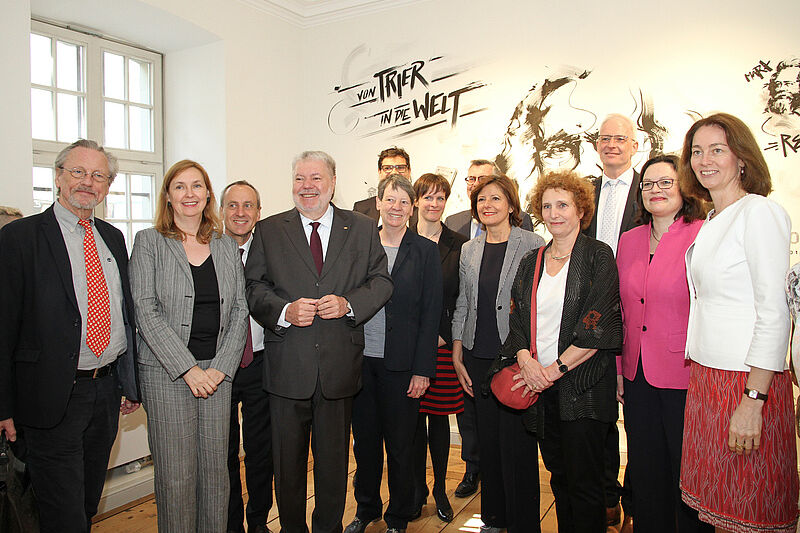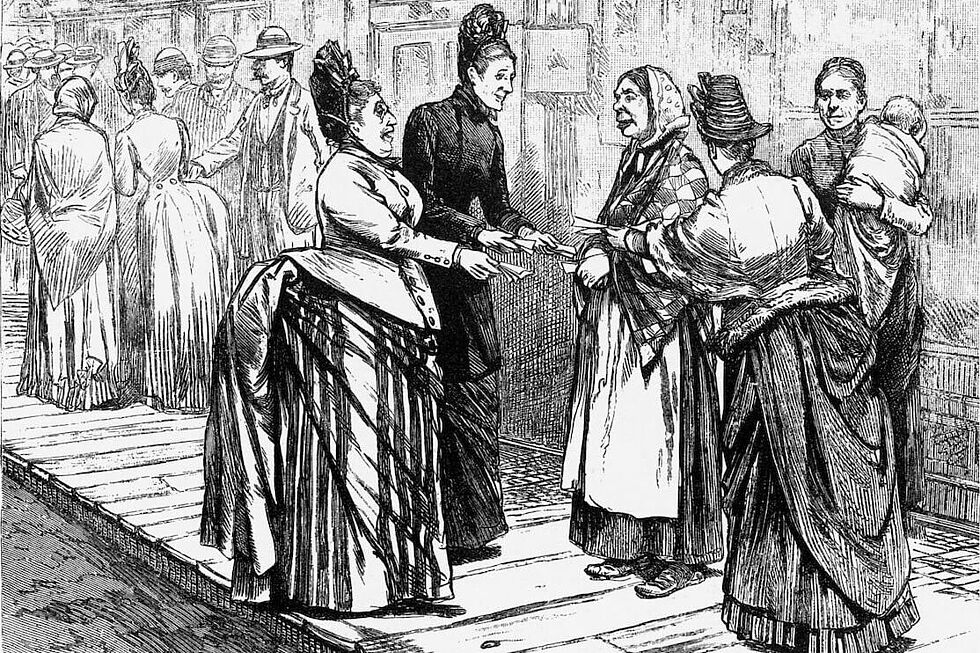Karl Marx, his house in Trier and the "Knight of the Noble Spirit"
Read this text in German.
Everyone knows Karl Marx, but hardly anyone has ever heard of his vicious and witty polemical satire on the "Knight of the Noble Spirit" ("Ritter vom edelmüthigen Bewußtsein"). Published in 1853, this small booklet is part of the book collection at Karl-Marx-Haus in Trier (link), which has in the meantime been moved to the Friedrich-Ebert-Stiftung's library in Bonn (link).
The "Knight" is really about a man by the name of August Willich, who is today rather obscure, and with whom Marx had a rather fierce quarrel over the right direction for the workers' movement to take.
Willich, who like Marx was a member of the "Communist League" and in exile in London around 1850, was the most important representative of the radical faction of this organisation. Political differences between the two exiles degenerated to such extent that they erupted in a heated wrangle in which Willich publically heaped abuse upon Marx, finally even challenging him to a duel. At least this was what Wilhelm Liebknecht reported, adding that Marx sent his second to the duel, which allowed him to escape by the skin of his teeth.
The dispute over the right direction for the workers' movement to take ultimately led to a schism in the League. Willich emigrated to the USA in 1853, while in the same year Marx published his lampoon on the "Knight of the Noble Spirit". Levying the full force of his literary prowess at his arch-enemy, he did not leave one good hair on him. If you like to read scathing polemics, you will enjoy reading this text—even if you do not know much about the background to it. You will find the text here (link in German).
This small, very rare booklet is part of the book collection at the Friedrich-Ebert-Stiftung Library. This and many other valuable and rare first editions by Karl Marx, Friedrich Engels and the early communists, socialists and anarchists come from the book collection of the Karl-Marx-Haus in Trier.
A brief history of Karl-Marx-Haus in Trier and its library
The Social Democratic Party of Germany (SPD) acquired the house in which Karl Marx was born in Trier in 1928 in order to turn it into a memorial to this great visionary of the workers' movement. Librarians at the voluminous SPD party library in Berlin handpicked exquisite individual items from their archive that were to form the basis for a special library in the memorial. The "House of the Workers Movement" that was planned never opened. By 1933 the National Socialists had seized power. A public memorial to Karl Marx was out of the question.
A renewed attempt was ventured in 1946. The "International Committee for the Reconstruction of Karl Marx's Birth House and the Karl Marx Museum in Trier" collected and acquired books authored by Marx, Engels and other authors from the political scene. On Marx's 150th birthday (1968), Willy Brandt, at the time Chairman of the SPD and Minister of Foreign Affairs, placed the memorial and books in the care of the Friedrich-Ebert-Stiftung. Karl-Marx-Haus in Trier with its library and study centre maintained the same format until the early 2000s.
In 2009, its valuable collection of books was integrated into the vast research library of the Friedrich-Ebert-Stiftung in Bonn. The museum Karl-Marx-Haus remained in Trier, and has become the location of a new permanent exhibition opened on the occasion of Marx's 200th birthday.
A small assortment of valuable collections at the Karl-Marx-Haus
The bequest endowed by Roland Daniels marked the inception of this valuable book collection. Roland Daniels was a physician in Cologne, a member of the "Communist League" and a close friend of Karl Marx. His bequest contains a handwritten volume of poems by the 18-year-old Marx for his father and a collection of poems written by Karl Marx for his bride Jenny von Westphalen dating from 1837.
Then came the Adams Collection. Frederick Baldwin Adams Jr. was the director of the John Pierpont Morgan Library in New York and a bibliophile book collector. This collection contains almost 1,000 titles, including 40 editions of the "Manifesto of the Communist Party" among them the first edition, an edition of "Capital" personally dedicated by Marx and Engels, as well as first and original editions with handwritten notes by Saint-Simon, Fourier, Owen, Weitling, etc.
The first edition of the "Holy Family" and a complete original of the "Neue Rheinische Zeitung" were also acquired from a collection of Ludwig Rosenberger, a businessman with German-Jewish roots from Chicago.
The last large bequest to be integrated into the collection, containing almost 20,000 volumes, was the private library of the historian and Marx and Engels bibliographer Bert Andréas. It includes almost all the key sources on the history of the European workers' movement and 19th century socialism. Special emphasis is placed on printed rarities from the Vormärz (the period preceding the 1848 March Revolution) and almost all first and original editions published by Karl Marx and Friedrich Engels, especially of the "Communist Manifesto".
Our "Knight of the Noble Spirit" from 1853, together with some other extremely rare writings, came to Trier through an auction at Sotheby's in London.
The closing is taken from Marx's polemic:
"And thus ends the sweet-sounding, extraordinary, lofty, outrageous, incredible, true and adventuresome story of the world-famous Knight of the Noble Spirit."
###
For more information on these and other collection from the history of social democracy visit the official website of the FES Library (link in German).
About FES Connect
Connecting people, in the spirit of social democracy, we source and share content in English from the German and international network of the Friedrich-Ebert-Stiftung.








